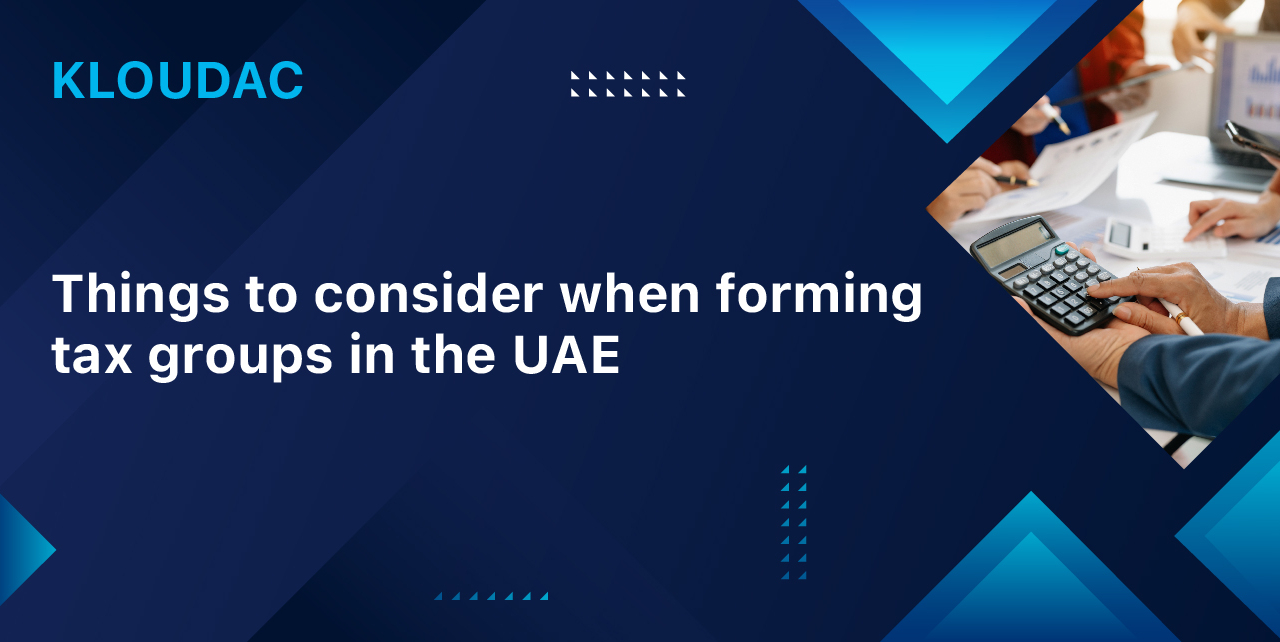As businesses thrive in the dynamic economic landscape of the United Arab Emirates (UAE), understanding and navigating the tax regulations is crucial. Forming tax groups can be a strategic move for companies looking to optimize their tax positions and enhance financial efficiency.
Legal Structure and Eligibility
Before forming a tax group, it’s vital to understand the legal structures eligible for such arrangements. Companies in the UAE often operate as sole proprietorships, partnerships, or corporations. Identifying the suitable legal structure for forming a tax group is the first step in the process.
Common Control Requirement
One of the primary conditions for creating a tax group is the concept of common control. Entities seeking to form a tax group must be under common control, meaning that one entity should have a significant degree of control or ownership over the others. This requirement ensures that the entities within the group are interconnected and operate under a unified management structure.
Tax Group Registration Process
Navigating the registration process is a critical aspect of forming a tax group. Businesses must adhere to the specific procedures outlined by the UAE tax audit authorities. This includes submitting the necessary documentation, meeting eligibility criteria, and fulfilling any additional requirements mandated by the tax regulatory bodies.
Financial Benefits and Optimization
One of the primary motivations for forming tax groups is the potential financial benefits. By consolidating the tax position of multiple entities, businesses can optimize their overall tax liability. Understanding the potential savings and advantages that come with forming a tax group is essential for making informed decisions.
Accounting and Record-Keeping
Maintaining accurate and transparent financial records is imperative for businesses forming tax groups. Robust accounting practices and thorough record-keeping ensure compliance with regulatory requirements. This is particularly important in demonstrating the common control and interdependence among the entities within the tax group.
Compliance with Regulatory Changes
Tax regulations are subject to periodic changes. Businesses forming tax groups must stay abreast of any amendments or updates to the tax laws in the UAE. This proactive approach ensures that the tax group remains compliant with the latest regulatory requirements.
Professional Consultation
Given the complexity of tax laws and regulations, seeking professional advice is highly recommended. Engaging with tax experts and legal advisors can provide businesses with valuable insights, helping them navigate the intricacies of forming tax groups and ensuring compliance with all relevant regulations.
KLOUDAC Accounting Firm Dubai, UAE
Forming tax groups in the UAE can be a strategic move for businesses looking to enhance their financial efficiency and optimize their tax positions. After considering the legal requirements, financial benefits, and compliance obligations, businesses can navigate the process successfully. Consulting with professionals like KLOUDAC and staying informed about regulatory changes are key elements in ensuring the seamless formation and operation of tax groups in the UAE.
